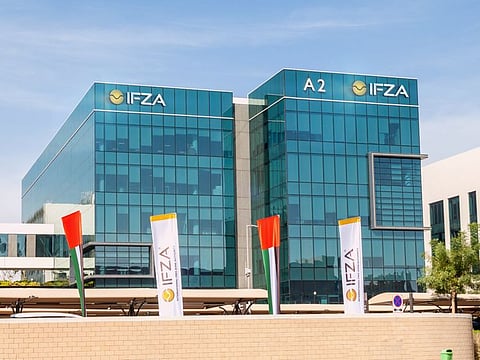Corporate tax in the UAE: Is your business prepared for managing tax compliance?
UAE CT law includes features that represent best practices in international taxation

The UAE officially issued a federal decree-law on corporate tax applied across all the emirates (federal decree-law no. 47 of 2022). For resident businesses and as well as non-residents with permanent establishments located in the emirates. This means the start of a new era of business taxation because they will face a corporate tax law coming into effect on June 1, 2023. The law aims among others at meeting international standards for tax transparency and avoidance of harmful tax practices.
Firstly, it is important to mention that corporate tax law includes features that represent best practices in international taxation. Thus, regarding tax calculation and tax declaration, some guidance can be derived from OECD standards and practices. Secondly, the implications of the new UAE corporate tax regime are far-reaching for businesses operating in the UAE. Besides the detailed assessment of the application of the corporate tax law, businesses must develop processes and procedures to manage tax compliance. So, let's dive a little bit deeper into substantial provision related to implications for businesses:
Businesses will become subject to UAE corporate tax amounting to 9% for business profits exceeding AED 375,000 from the beginning of their first financial year that starts on or after 1 June 2023. Therefore, depending on the financial year followed by the business, different tax and compliance periods will become applicable: In the case of businesses with a financial year from June 1 to May 31 the corporate tax return must be filed on February 28, 2025. Contrary to this, for businesses with a financial year from January 1 to December 31 the corporate tax return filing due date is September 30, 2025.
The taxable income (i.e., net profit or loss before tax) is derived from financial statements. However, this income will be subject to certain adjustments prescribed in the corporate tax law to determine the taxable income. Without a doubt it can be stated that financial statements and the accuracy of business data will now become even more critical for businesses.
It must be highlighted that free zone companies will also need to meet certain compliance obligations e.g., tax registration, filing a corporate tax return ¬ even though they won’t have to pay any tax on their qualifying income – satisfying transfer pricing requirements and meeting any other conditions to be prescribed through a Ministerial Decision.
As further details are released over the coming months through a series of Ministerial Decisions, businesses should continue to monitor these developments and prepare for compliance ahead of June 1, 2023. The “International Tax Compliance Platform” constitutes a professional tool designed together with DATEV and provides professional assistance in connection with certain tax compliance issues on an international basis. The web portal enables the transfer of real-time accounting and tax data from businesses/permanent establishments in the UAE to German (parent) companies, assignment of accounting data to the German accounting system, general exchange of information between associated businesses, statistics of the businesses’ economic data and calculation of corporate tax. Moreover, it delivers tax audit-proof documentation with a quality of DATEV standards, which constitutes a substantial advantage regarding the disclosure of accounting and tax data. The platform provides a high degree of flexibility as well, hence legal, and economic changes can be adapted fluently.
In order to navigate the current changing tax regulations, we have formed strategic partnerships with IFZA, a leading free zone community in the UAE.
IFZA is committed to supporting the community’s compliance with the latest regulation. The Free Zone community began the implementation of several activities such as workshops, webinars and seminars in multiple languages that aim to empower members around the world to face the upcoming changes to our business ecosystem.
For more information visit: tax2compliance.com or mail: anfragen@itcplatform.de
Sign up for the Daily Briefing
Get the latest news and updates straight to your inbox



